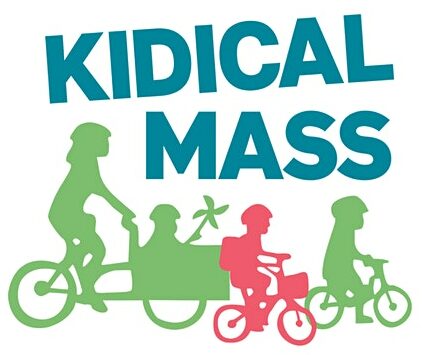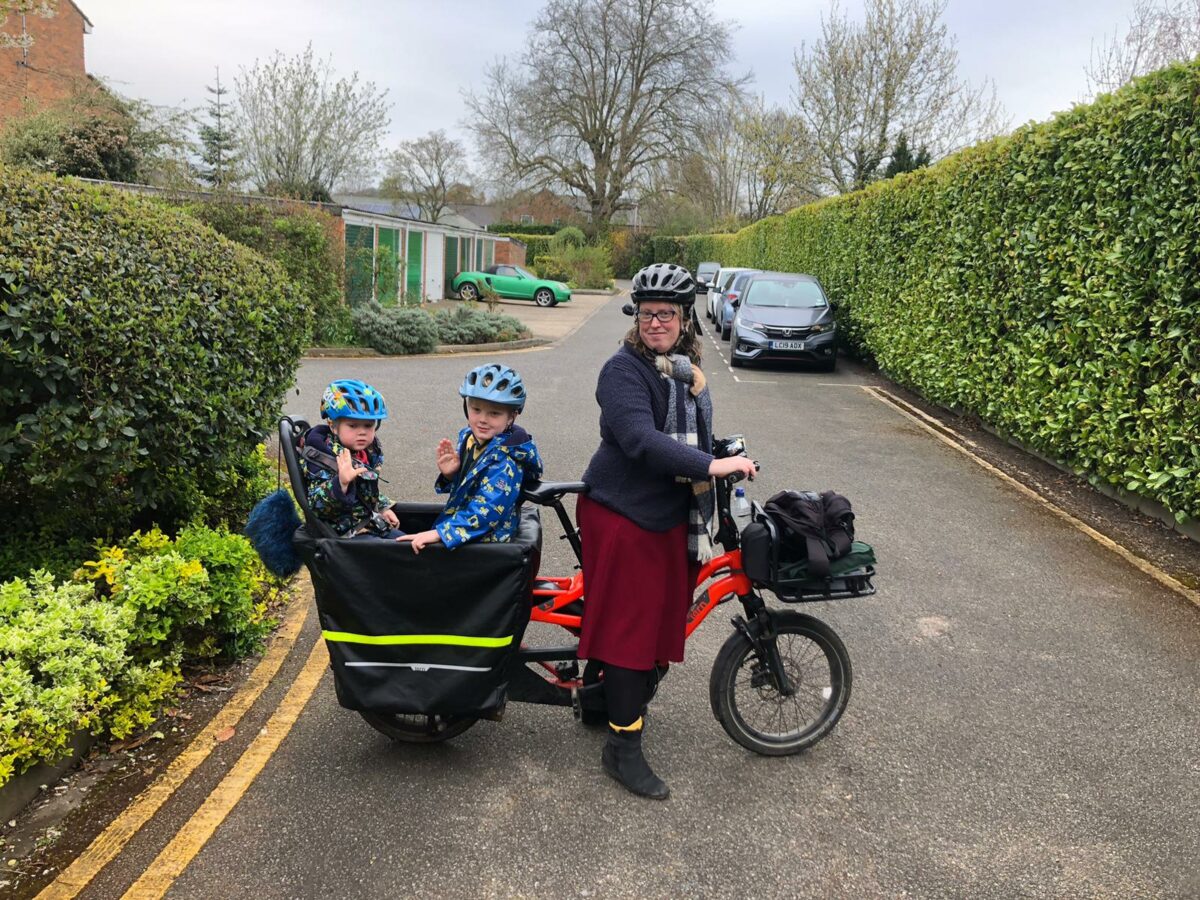Kidical Mass rides are now on hiatus for the Summer (we’ll be back on 10th September at Reading Cycle Festival) but this blog is not. Many (but by no means all) of us in the organising team here are car free, and I thought I’d take the opportunity of this quiet period (ha! with the kids home from school!) to write about some of the ways that we make this work, and some of the tricks and tools that help us.
But, before we get into all that, this week I thought I would talk about WHY we talk about it at all. I know that there is a bit of a stereotype around cyclist activists sometimes being, well, to put it politely, insufferable gits. There’s a risk that when we talk about being car free that it comes across holier-than-thou, or judgemental of those who don’t have a decent alternative to car usage. Given that, why bother? Why not just quietly make our choices without feeling the need to shout about them?
I feel that parallels can be drawn here to other forms of environmental activism – many people are vegan for environmental reasons, or feel strongly about being zero waste. Our family are neither of those, and I don’t see us going that way anytime soon. But we have friends in both camps, and we hear them talking about it, and I think even though we haven’t followed suit, it does impact our choices.
We might not be vegan, but we do have a meal plan now that involves no regular consumption of red meat, and regular vegetarian meals (many of which are very tasty and recommended by friends). We might not be zero waste, but when I have recently seen someone sharing something on plastic waste I am probably more conscious of the packaging I choose when I am shopping.
For us being car free has almost become like a game now. We try and do as much as we can without resorting to hiring a car. We’re privileged to have the resources (both in terms of energy and finances) to work out and acquire the kit that makes this possible and comfortable (more on that in a later article). I will add, though, that even a top of the line cargo ebike is cheap compared to most new family cars, so let’s not overlabour the financial privilege here.
It doesn’t have to be all or nothing though. The impact of twenty people who cut back, say, ten per cent of their car trips has a greater benefit on our streets than one person who cuts car usage entirely. Often the first ten per cent is the easiest to cut – short journeys without luggage or small passengers – and being out on a bike can be a bit addictive once you start. If a family decides that they can manage with one car rather than two that is a huge win.
This is why one of the main goals of Kidical Mass is to campaign for safer cycling infrastructure. Safe infrastructure makes it possible for a much greater number of people to take those first steps (pedals?) into cycling. It takes more people out of the bucket of “don’t have a decent alternative to car usage”. And who knows where that may lead? (If you’re very lucky, you might end up writing blog articles for a local cycling group of your friends on your day off! And right now I wouldn’t have it any other way.)

